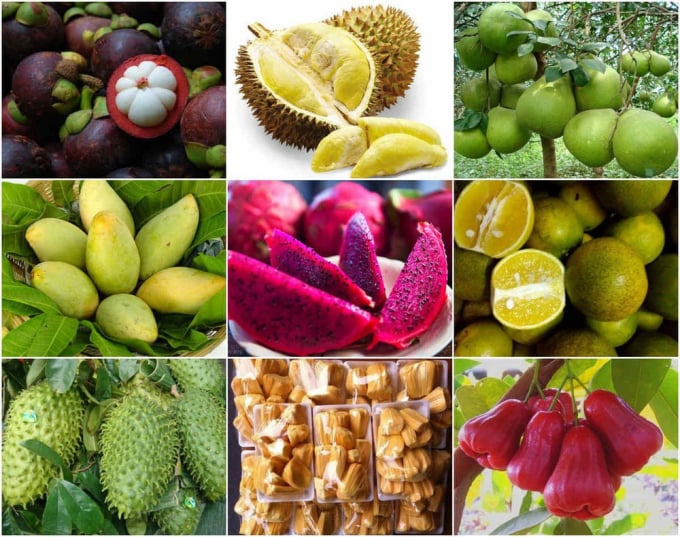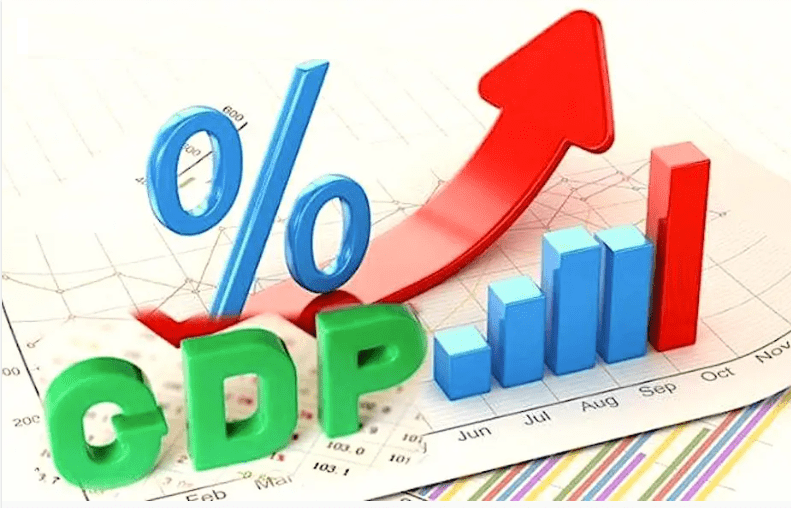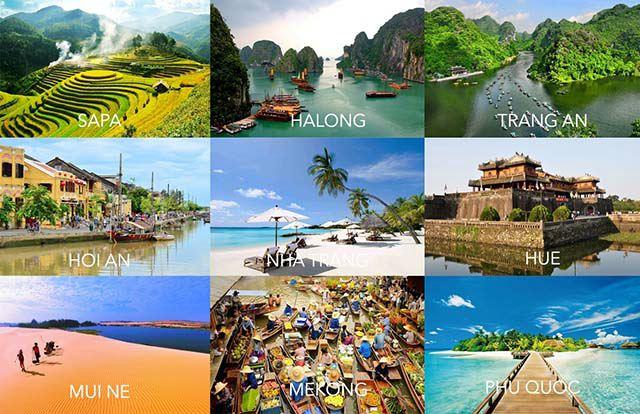
Piloting high-quality, low-emission rice cultivation in Can Tho city - Photo: CHI QUOC
The Ministry of Industry and Trade has also drafted a submission to the Prime Minister on the establishment of the council and received comments from ministries, localities, associations and businesses.
Tuoi Tre 's records show that opinions desire to establish a National Rice Council, along with solutions to overcome the lack of connection to build a prestigious and valuable Vietnamese rice brand in the market.
There are still many issues that need to be adjusted.
Minister of Industry and Trade Nguyen Hong Dien commented that our rice production industry still lacks a strategy, or in other words, a stable and solid development policy because we still have spontaneity in localities, producers, and even in each export business enterprise.
Furthermore, state investment in rice production and non-state investment in the rice export process and business are not commensurate, especially investment in seeds, science and technology, production and processing processes...
Another point is that many export enterprises lack professionalism, compete unfairly or do not make efforts to maintain and develop the market to strengthen their brand. If there were a National Rice Council, we would use the council's mechanisms and regulations to review and handle the situation.
"We still say that rice exports are large and have bumper crops, but farmers' incomes are still low. That proves that it is time for us to think and establish a National Rice Council to advise the Government and authorities on strong and feasible mechanisms and policies. Only then can Vietnamese rice have a brand and increasingly greater value in the world market," Mr. Dien shared about the idea of establishing the council.

Rice harvest in Hau Giang province - Photo: CHI QUOC
Need a database now
Speaking with Tuoi Tre, Dr. Nguyen Van Hoi, director of the Institute for Strategy and Policy Research on Industry and Trade, said that rice is a special commodity compared to many other industries and in the idea of establishing the association, the two ministries have fully stated the necessary reasons.
However, according to Mr. Hoi, for the council to operate effectively, it is necessary to clearly define the regulations, organization of activities, and clearly assign responsibilities and powers to the parties participating in the council. In particular, it is necessary to give maximum power to the council and its members, on the basis of legal regulations and international commitments.
Council members will be able to optimally apply legal regulations to "make their own decisions" in some cases, especially when urgent situations arise. At the same time, the operating regulations need to promote the most effective coordination and initiative of participating members, in order to increase unity in direction and connection in activities.
Regarding priorities for implementation immediately after the establishment of the council, Mr. Hoi said that in order to be able to operate unified rice production and trading activities, the council needs to build a common database for the industry.
This database must be compiled from ministries, sectors and localities from the production, processing, distribution and business stages (domestic consumption and export).
Along with that is data information of rice producing and exporting countries, competitors, data on world rice market information to serve as a basis for market management to be closer to reality and more effective.
In the long term, it is necessary to re-evaluate the development strategy of Vietnam's rice industry, aiming to build a rice strategy along the chain, sustainable production, adapt to climate change, reduce emissions and focus on producing high-quality products, focusing on brand building.

Leaders of the agricultural sector of An Giang province affirmed that the establishment of the National Rice Council is an important condition to promptly remove bottlenecks for businesses and farmers - Photo: BUU DAU
Establish standing teams for each specialty
Former Deputy Minister of Agriculture and Rural Development Le Quoc Doanh said that the establishment of the National Rice Council is completely correct at this time, not only to solve immediate problems but also to solve longer-term problems.
"Having a National Rice Council will help us analyze, evaluate, process information and make unified, centralized decisions. Otherwise, we have to consult with ministries, localities, associations... which takes a lot of procedures and may not result in a unified opinion," said Mr. Doanh.
According to Mr. Doanh, the establishment of a council is not a new issue. For example, Thailand has a national rice council, Indonesia has a palm oil council, Brazil has a coffee council... These national councils operate very effectively.
In terms of organization and operation, Mr. Doanh believes that the council's standing group will be the most important group. This is the group that receives information from businesses and farmers to propose solutions. Therefore, the council's standing group needs to be divided into groups according to specialized fields, for example, a group specializing in production, an export group, a market group, etc.
Chairman of the Vietnam Food Association (VFA) Nguyen Ngoc Nam suggested that we should pay more attention to rice imports because in recent years we have imported quite a lot of rice (imported mainly for processing).
Importing rice for domestic processing and domestically produced rice for export is very effective, but in the long term, if a National Rice Council is established, research and calculations are needed to manage the issue of rice imports.
Need to learn from Thailand and Japan
Professor Vo Tong Xuan said he was very pleased with the proposal to establish a National Rice Council. "I hope the two ministries will study Thailand's recent practices to develop transparent and effective strategies, mechanisms and policies to ensure stability and market development for the Vietnamese rice industry in the future," said Mr. Xuan.
Accordingly, in Thailand, the Rice Policy and Management Council and a number of major associations and organizations are involved in this field. In particular, the Thai Rice Exporters Association plays an important role in managing and promoting rice exports, supporting exporters and representing their interests in both domestic and international markets. The Thai Rice Mills Association focuses on the interests of rice millers in Thailand, addressing issues related to domestic rice production, processing and distribution.
The Thai Rice Farmers Association provides a platform to address farmers’ concerns and promote sustainable agricultural practices, ensuring farmers’ welfare and development. The Thai Rice Traders Association works to stabilize rice prices and ensure a stable supply chain from production to retail.
In addition, Thailand also has many local cooperatives and farmer organizations that play an important role in the rice supply chain, helping to reduce transaction costs and market uncertainty for farmers, working with national associations to improve the overall efficiency and sustainability of the rice industry in Thailand.
In Japan, as a country with a tradition of using a lot of rice, they are very serious about increasing the value of rice, first of all building a rice brand by focusing on quality over quantity. Compared to products from many other countries, Japanese rice often has a higher price in both domestic and foreign markets and has a large brand recognition.
Japanese rice brands also benefit significantly from efforts to promote traditional culture through dishes such as sushi, onigiri (rice balls), mochi (rice cakes)... These specialties are often introduced as only delicious and authentic when using Japanese rice.
To maintain these advantages, Japan is very diligent in ensuring product quality.
Every year, the Japan Grain Inspection Association (JGIA) evaluates rice varieties grown in the country, classifies their quality, and publishes the results. The quality assurance of rice varieties is also a major investment. Research and breeding of rice varieties takes place regularly with a very thorough screening process.
In fact, the evaluation was conducted directly by eating samples for months. During this process, the researchers were only allowed to eat white rice and drink green tea to ensure the most objective evaluation of the samples.
Expectations of timely credit and policy bottlenecks
Mr. Dinh Thua Tu, residing in Vinh Khanh commune, Thoai Son district, An Giang, said that currently farmers only know how to produce high-quality rice, while the output is almost left open.
"In my opinion, we should establish a National Rice Council to guide the price of rice and which enterprises should buy it, to avoid buying at low prices and forcing farmers. I think everyone wants the National Rice Council or each province and region to have more specific prices, in addition to supporting warnings about many issues related to production," said Mr. Tu.
Mr. Tran Van Cung, Chairman of the An Giang Province Cooperative Union, stated that the council’s main task is to orient the market and limit regulations and sanctions against businesses that compete unfairly. However, it must avoid overlapping with the role of the VFA.
Mr. Tran Thanh Hiep, Deputy Director of the Department of Agriculture and Rural Development of An Giang, said that the draft regulations of the National Rice Council clearly stated the roles of the Government, ministries and localities. On that basis, localities will have a voice in their localities, and enterprises participating in the association will have a voice in accessing loans.
"The voice of the National Rice Council will be stronger, the associations will accompany immediately, there will be no more ambiguity about the role of the associations," Mr. Hiep added.
Dr. Tran Huu Hiep commented that in general, for many years the rice industry has been divided into many pieces by buying and selling, so when one person gains, the other loses.
In that context, the proposal to establish a National Rice Council is not necessarily optimal but would be better to enhance coordination, consultation and non-fragmented decision-making for this important, humane economic sector.
Faced with fluctuations in world market prices and concerns about food security instability, we must ensure a rice economy that meets three criteria: ensuring domestic food; harmonizing economic interests, people's livelihoods, and social harmony; avoiding creating inequality in people's access to food and the legitimate interests of rice growers.
Source: https://tuoitre.vn/lap-hoi-dong-lua-gao-quoc-gia-lien-ket-de-tang-gia-tri-thuong-hieu-gao-viet-20240809075433947.htm







































Comment (0)